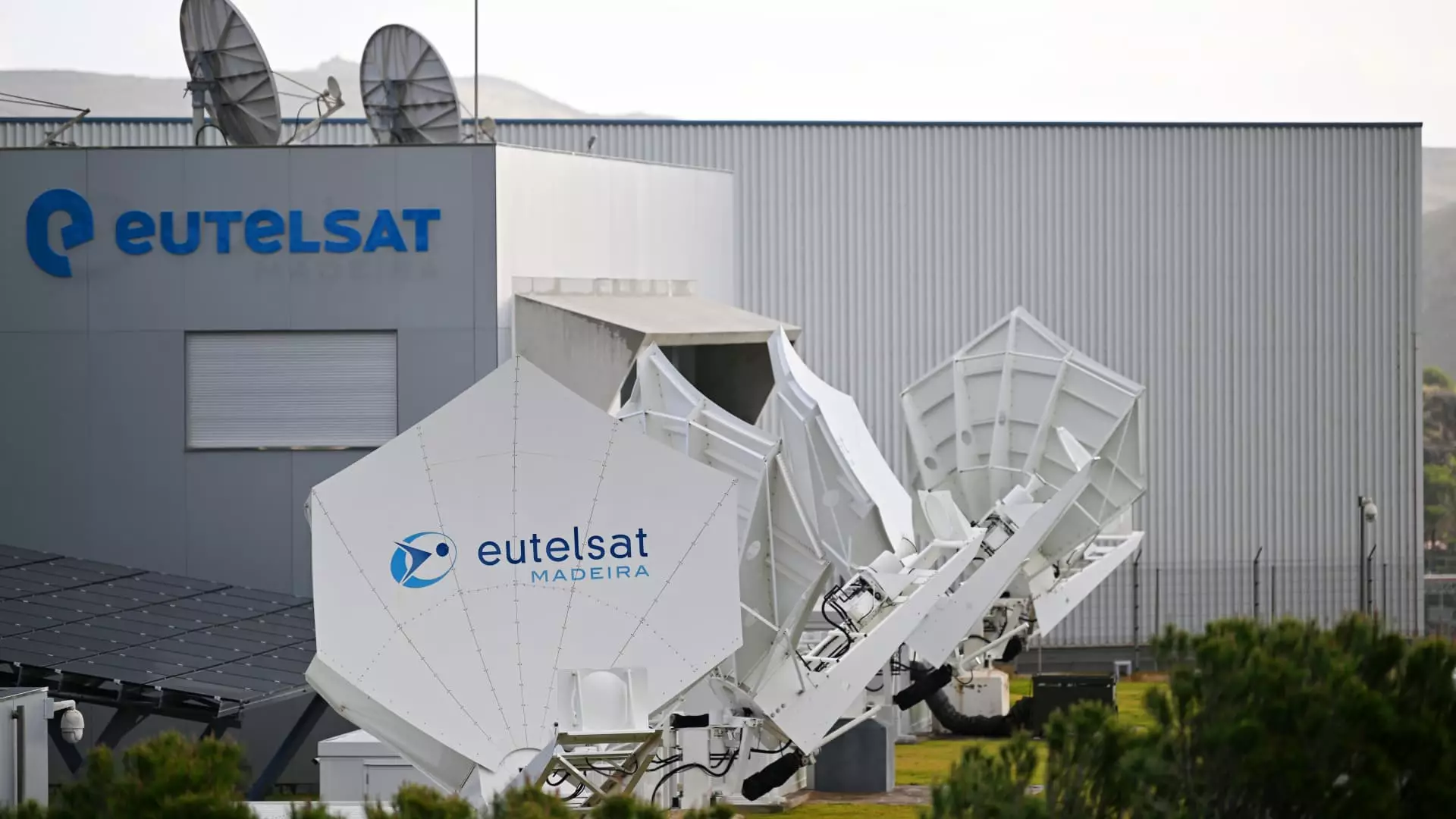Last week, shares of Eutelsat, the French satellite operator, experienced a meteoric rise, skyrocketing nearly 390% in just a matter of days. For a company that often found itself operating in the background, this sudden surge brings a mix of exhilaration and bewilderment—not just for investors but also for the myriad stakeholders observing the shifts in European defense strategies. The headlines have been flooded with Eutelsat’s rapid ascent, but rather than merely celebrating the numbers, it’s crucial to delve deeper and critically evaluate what this frenzy truly signifies for the satellite industry and, more tangentially, European geopolitics.
Eutelsat’s stock saw dramatic swings, with an impressive uptick of 77% on Tuesday alone, followed by an astonishing 120% the following day. This volatility invites speculation about the underlying factors propelling such fervor. The company’s focus on satellite data connectivity has always been a solid business model, yet the recent leap in their value ties closely to a very specific geopolitical landscape. The interconnectedness of technology and defense capabilities, particularly in a time of war, always leaves room for critical examination.
Geopolitical Chess: The Role of Defense Policy
The heart of the matter lies in Ukraine, where satellite communications have become a lifeline for the military amidst ongoing hostilities due to Russia’s invasion. Eutelsat’s involvement comes amidst reports of its potential consideration to replace Elon Musk’s Starlink network in Ukraine. As the geopolitical tides shift with changing U.S. policies under President Trump, faith in Musk’s venture appears fraught with uncertainty. Trump’s recent actions—including a halt to military aid to Ukraine—pose risks, leaving the country pondering its strategic telecommunications future.
Such a landscape reflects not only upon Eutelsat’s prospects but also on the implications for NATO allies, primarily those in Eastern Europe who have historically relied on U.S. support. In times of conflict, clouded by political drama, the reliability of such alliances faces relentless scrutiny. They may currently find themselves turning towards alternative providers like Eutelsat, and through this lens, the company’s surge appears far less fortuitous and more of a calculated response to prevailing insecurities.
The Illusion of Stability: An Analysis of Market Volatility
While the overt commercial performance of Eutelsat deserves recognition, critical analysis reveals significant flaws in associated risk management and stability. A staggering climb of almost 400% can often be a misleading indicator of lasting prosperity. The question looms over whether investment in Eutelsat represents a frenzied rush towards an unsteady choice, rather than a firm grasp on secure, long-term growth. Many analysts and investors may find themselves euphoric in the short term but oblivious to shifts in their company’s competitive landscape, particularly amid such changes in defense policy.
Moreover, as CEO Eva Berneke expressed to Bloomberg her interest in stepping up Eutelsat’s involvement with Ukraine, this situation unveils yet another layer of complexity. In positioning themselves as a potential alternative to Starlink, they may become embroiled not just in market competition, but also in international controversy. Hence, while Eutelsat may revel in newfound advocacy from the EU, one could argue that ultimately they remain vulnerable to forces beyond their control, including the capriciousness of political motives and international relations.
The Dilemmas of Global Connectivity and Responsibility
The display of rapid gains in Eutelsat’s shares serves as a stark reminder of the delicate balance between technological advancement and ethical responsibility. The convergence of technology and warfare demands acute scrutiny, particularly in light of the responsibilities borne by companies participating in such ecosystems. Stakeholders need to grapple with the ethical implications of profiting from conflict; if Eutelsat leans into providing connectivity for military operations, how does it navigate the humanitarian responsibilities that accompany such contributions?
Notably, the spats involving Musk, U.S. Secretary of State Marco Rubio, and Polish officials shed light on deeper rifts within alliances that once seemed stable. Poland’s Foreign Minister has suggested that should Starlink falter, alternatives like Eutelsat may step in, but at what cost? In this context, profits must be considered alongside ramifications for humanitarian efforts and international alliances.
In sum, while Eutelsat’s stock rolls forward with resounding applause, the underpinning narrative is fraught with uncertainties and ethical challenges. The quest for leadership in connectivity may illuminate future growth, but it must also reckon with the volatile and sometimes treacherous course of geopolitical realities. Investors and policymakers alike should tread cautiously as they navigate these exciting, yet perilous waters.

